2024 Guide to MLOps Platforms & Tools
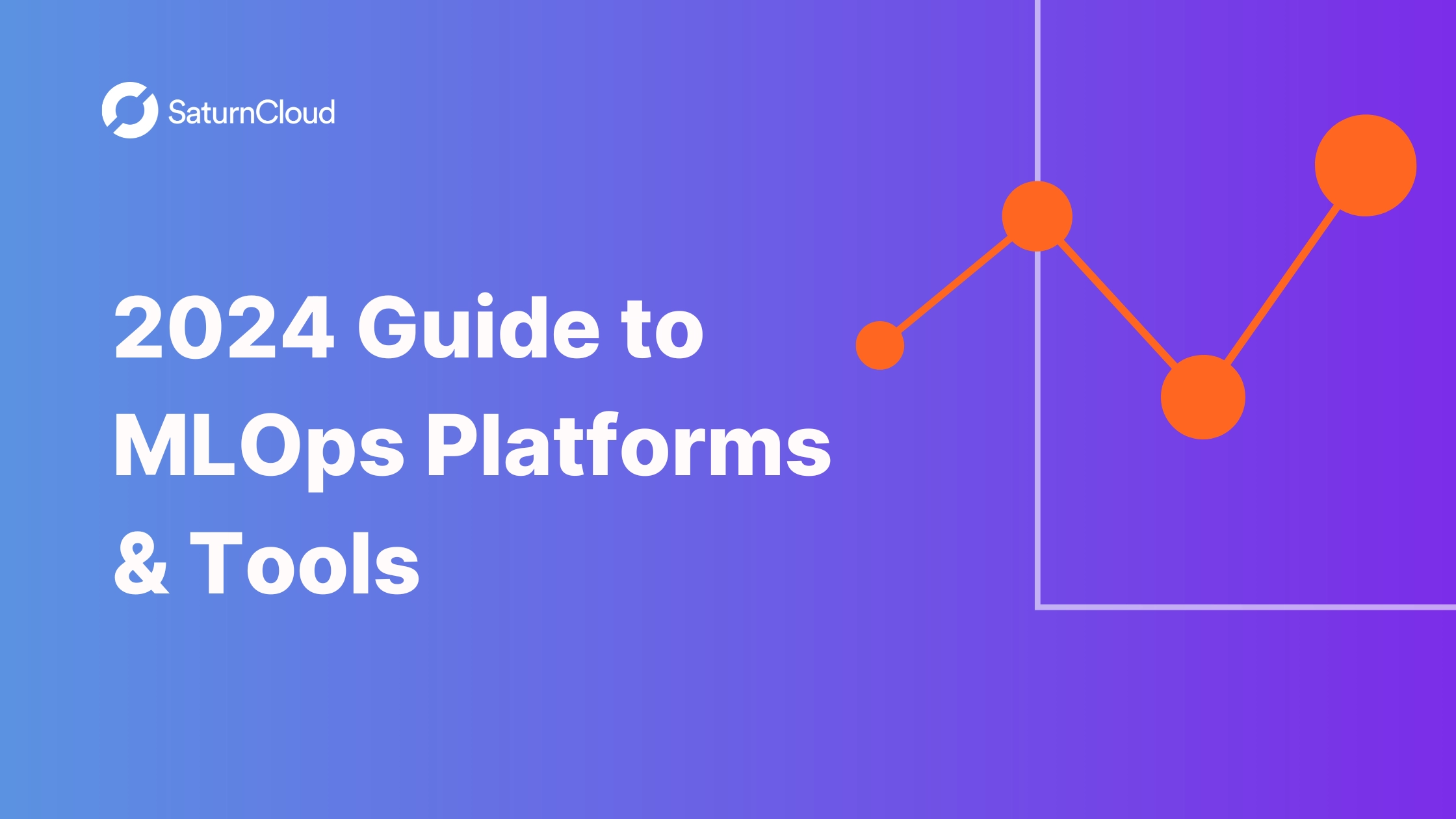
Standardize and Streamline ML Workflows with MLOps
Teams increasingly rely on ML models to automate and optimize their operations. Managing them can be challenging, especially as they become more complex and require more resources to train and deploy.
This has led to the emergence of MLOps, as a way to standardize and streamline the ML workflow. MLOps emphasizes the need for continuous integration and continuous deployment (CI/CD) in the ML workflow, so that models are updated in real-time to reflect changes in data or ML algorithms.
This can help orgs can ensure that their ML models are:
Continuously updated and accurate
Helping to drive innovation
Reducing costs
Improve efficiency
The MLOps platforms listed below can showcase how they streamline the development and deployment of ML models and enhance team collaboration, smoothing the process from data to deployment.
Saturn Cloud
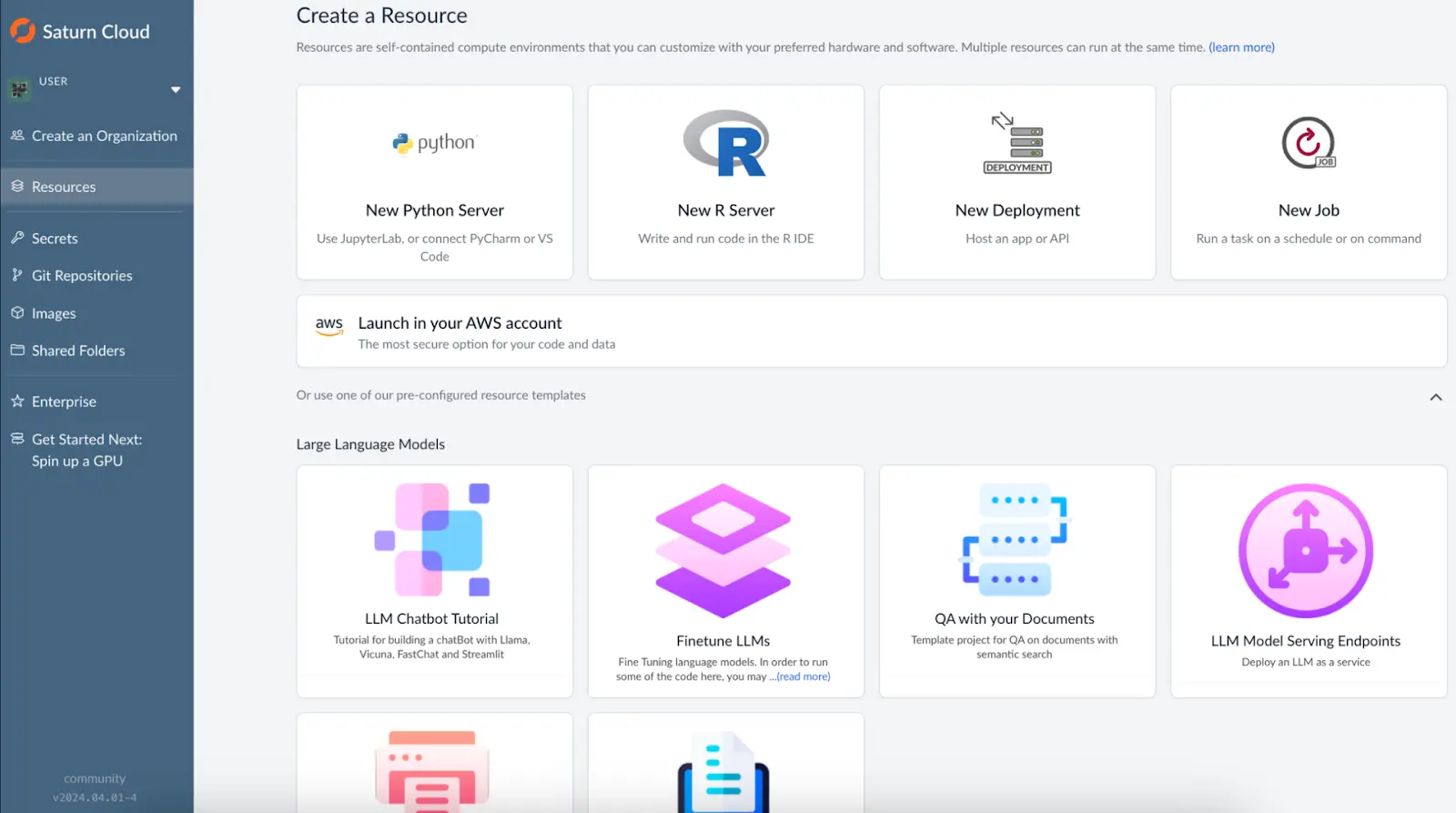
Saturn Cloud is an MLOps platform that offers hassle-free scaling, infrastructure, collaboration, and rapid deployment of ML models, focusing on parallelization and GPU acceleration. It has flexible pricing and easily integrates with cloud service providers such as AWS, GCP, Coreweave, and OCI.
Some key advantages and features of Saturn Cloud:
Resource Acceleration Focus: User-friendly GPU acceleration and flexible resource management, simplifying GPU usage without the typical infrastructure management overhead.
Distributed Computing: Tightly integrates with Dask to scale workloads easily across multi-node clusters, facilitating parallel and distributed computing in Python.
Managed Infrastructure and Pre-built Environments: Managed infrastructure and pre-built environments to reduce the required setup and maintenance effort.
Easy Resource Management and Sharing: Facilitated resource sharing (e.g., Docker images, secrets) with straightforward management of ownership and access permissions, plus easy cloning of environments for consistent code execution.
Infrastructure as Code: Utilizes a recipe JSON format for defining and managing resources, promoting consistency, modularity, and version control in infrastructure setup and management.
Oracle Cloud
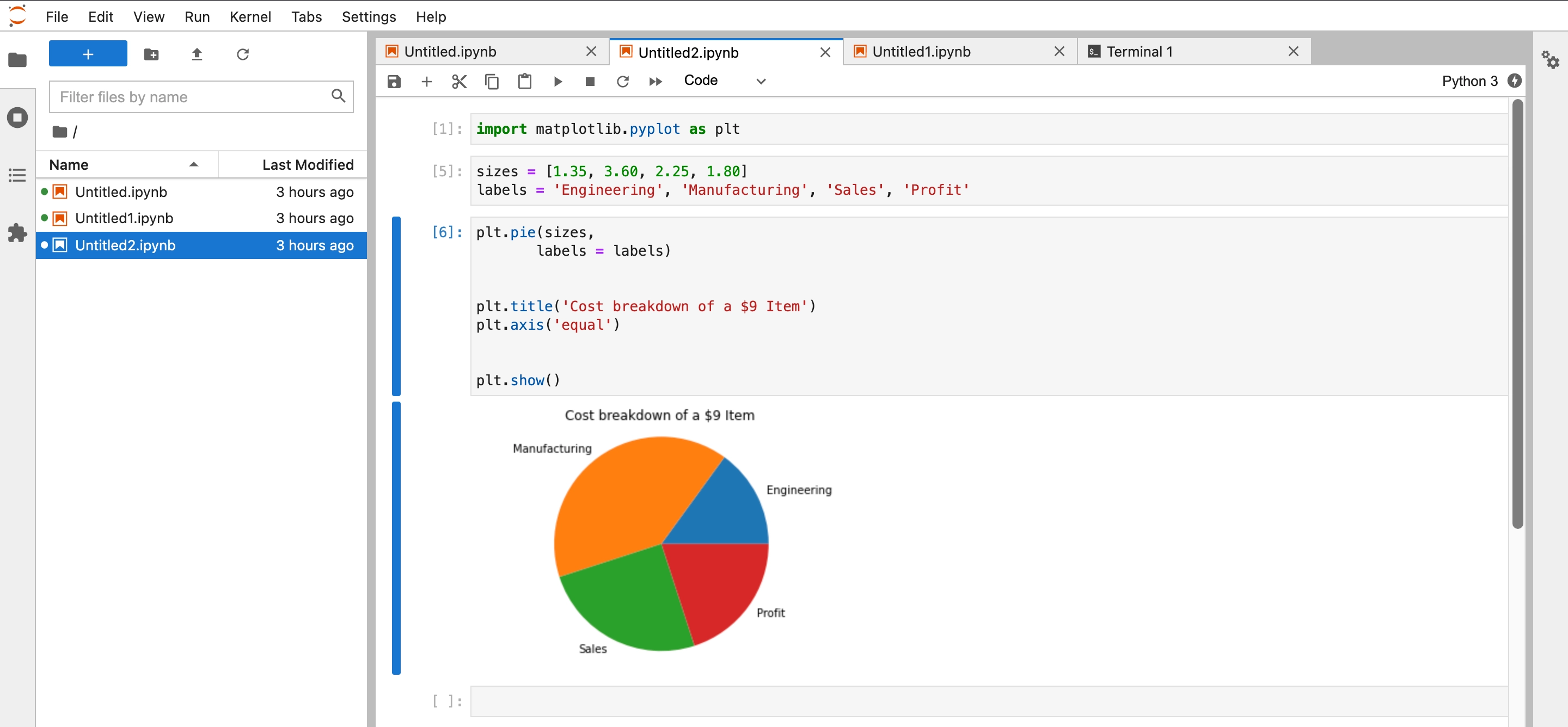
Working with notebooks in Oracle’s Cloud Infrastructure provides an integrated environment to create, manage, and share Jupyter notebooks. This service is designed to support data scientists throughout the machine learning lifecycle, from data exploration and prototyping to deployment and management.
Quick Takeaways:
Integrated Jupyter Notebook service with access to Oracle Cloud resources, including databases and big data services.
As it is cloud-based, the setup complexity is relatively low. Oracle provides managed services that help streamline the configuration and maintenance of the data science environment.
The pay-as-you-go pricing model allows scalability but can vary based on resource usage. The specific costs for the Jupyter solution would depend on the computing and storage resources utilized.
Amazon SageMaker
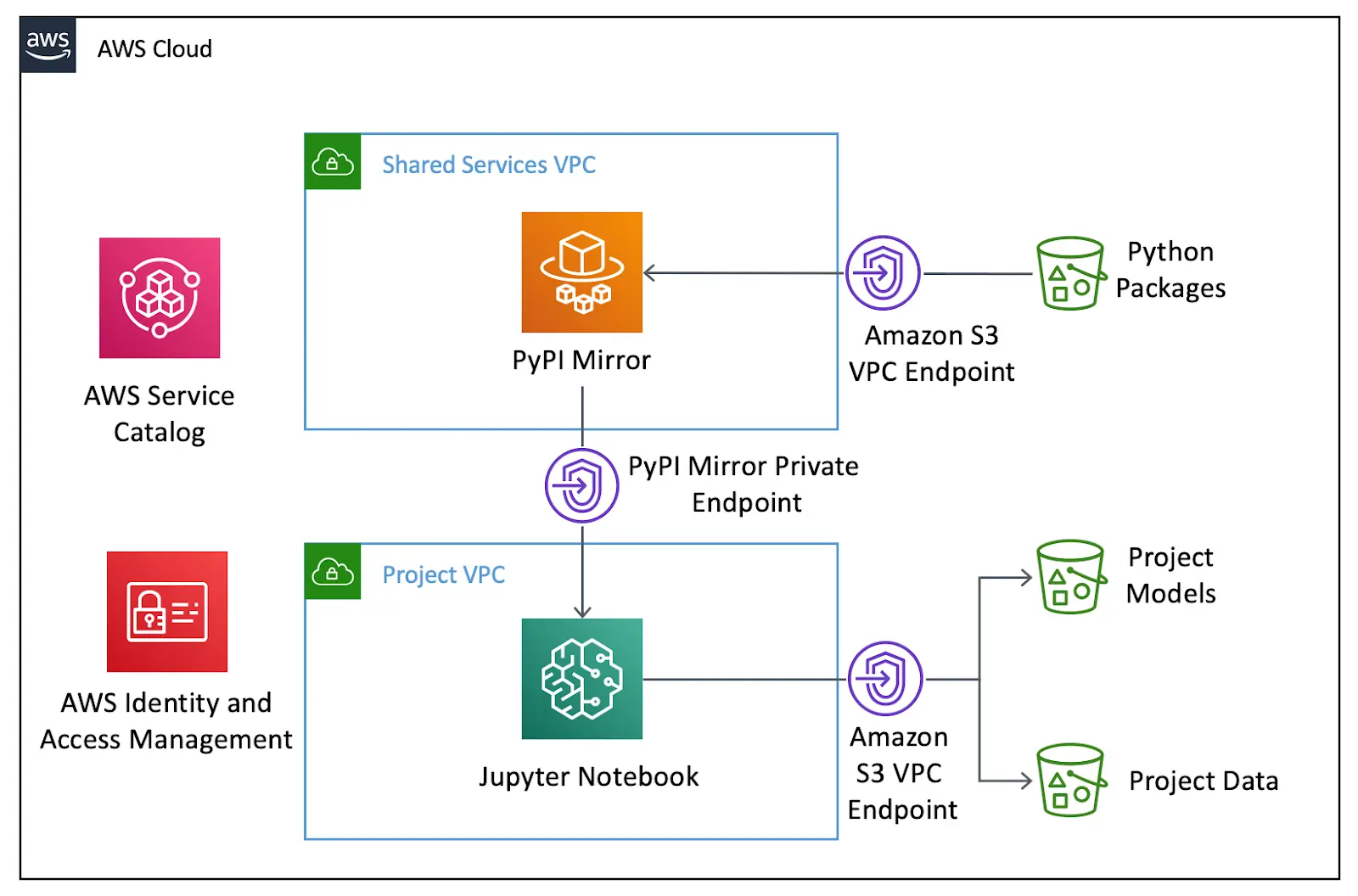
Amazon SageMaker is a fully managed service that allows data scientists and developers to quickly build, train, and deploy machine learning models. SageMaker stands out for its broad range of features and deep integration with AWS services.
Quick Takeaways:
Comprehensive but can have a steep learning curve.
Pay-as-you-go pricing model, potentially expensive at scale.
Requires some initial setup but offers extensive AWS integration.
See how SageMaker stacks up against Saturn Cloud:
Anaconda
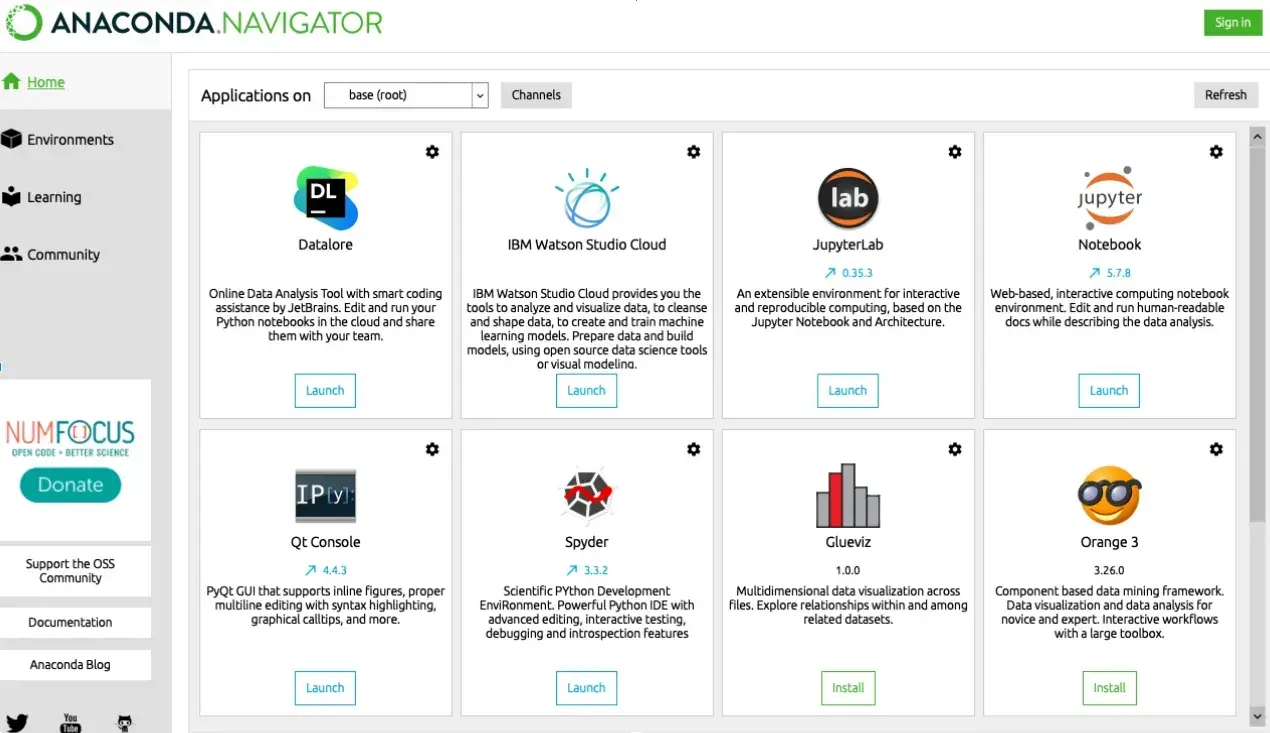
Anaconda is a free and open-source platform for Python/R programming languages. It can be easily installed on any OS, such as Windows, Linux, and Mac. It provides over 1500 Python/R data science packages suitable for developing machine learning and deep learning models.
Quick Takeaways:
Offers a comprehensive package management system, an environment manager, and a vast repository of open-source packages.
Aims to reduce complexity in managing dependencies and environments, making it straightforward to install and maintain even for users new to Python or R.
Free for individual use with Anaconda Individual Edition, while the Commercial Edition and Team Edition provide additional features and support for enterprise users at a cost.
Microsoft Azure ML Platform
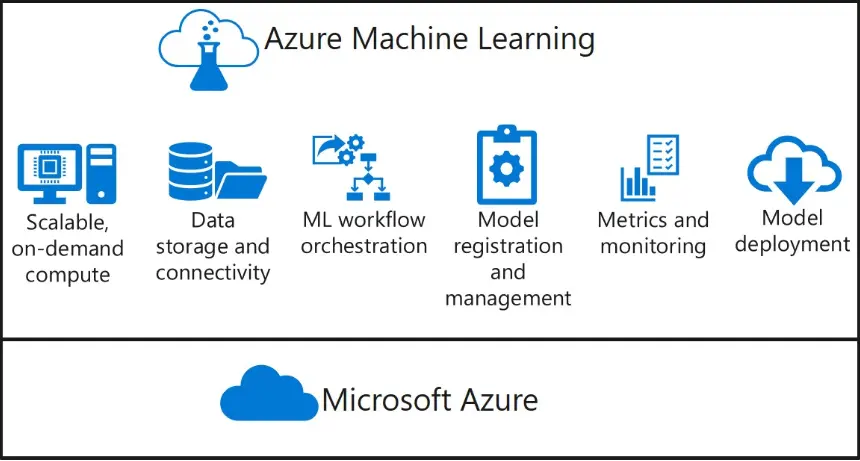
Microsoft Azure ML Platform offers a broad array of AI tools and a seamless integration with Microsoft products, making it ideal for teams already embedded in the Microsoft ecosystem.
Quick Takeaways:
User-friendly interface integrated with Azure services.
Pay-as-you-go pricing for competitive cloud resources.
Offers a wide range of AI tools and easy setup.
Domino Data Lab
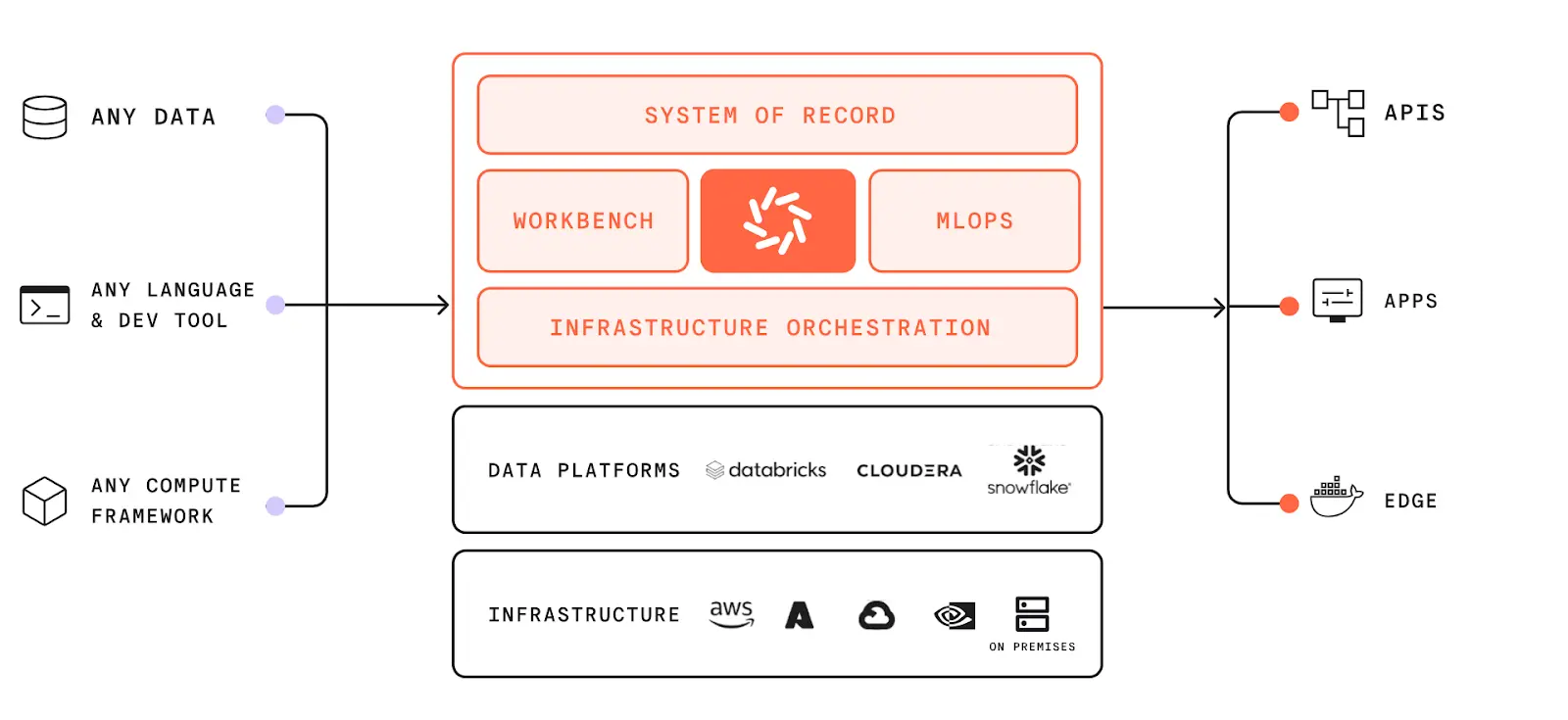
Domino Data Lab offers a comprehensive MLOps solution that supports the entire model lifecycle, enhancing collaboration and productivity.
Quick Takeaways:
Might be complex for beginners, tailored for enterprise needs.
Premium pricing, offering specialized solutions for enterprises.
Requires configuration but supports extensive collaboration features.
Databricks
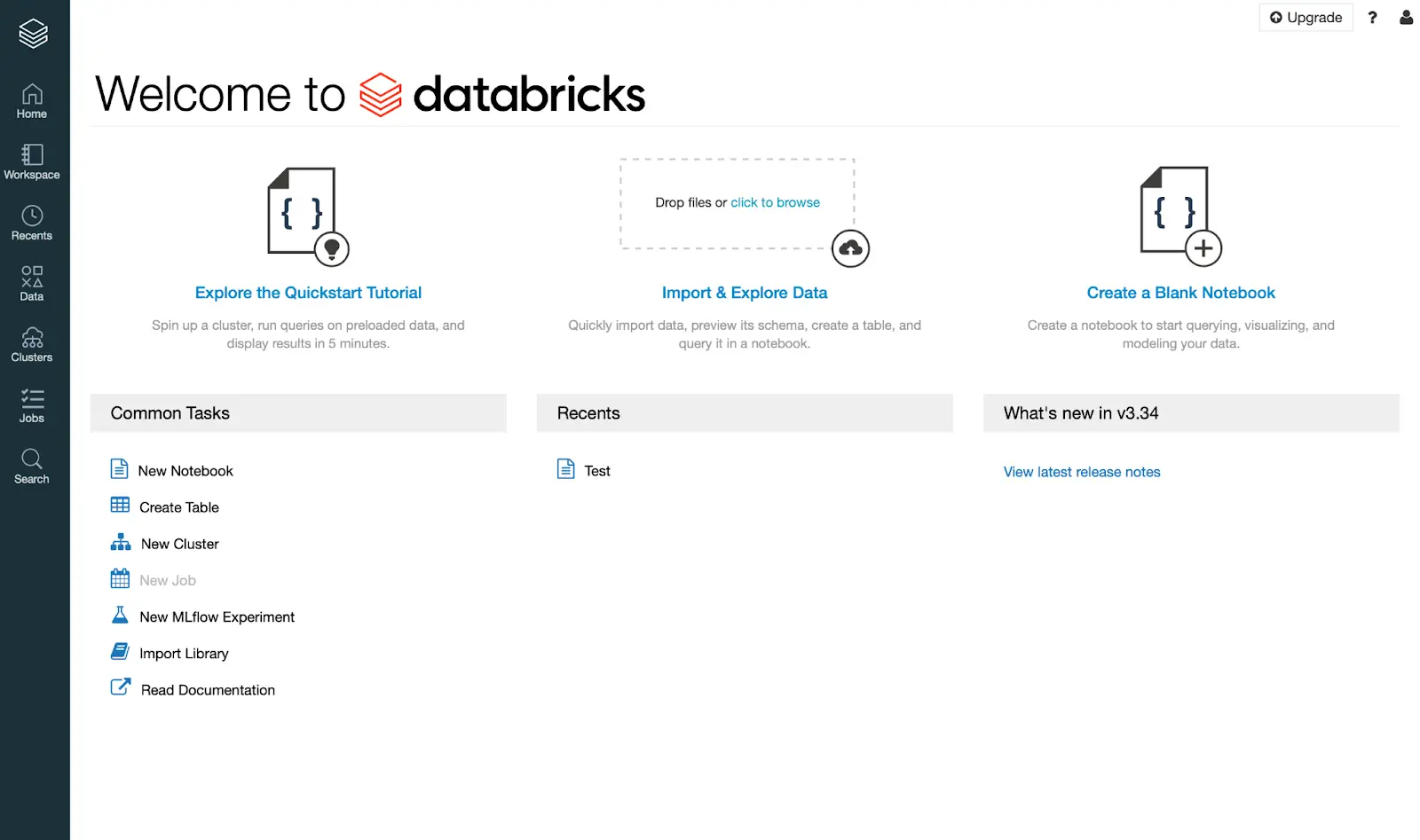
Databricks is built on Apache Spark, providing a collaborative environment for big data processing and analytics. Its integrated workspace allows data engineers, data scientists, and analysts to collaborate, leveraging Spark for various use cases.
Quick Takeaways:
It can be complex to navigate, integrating both data analytics and AI.
Based on Databricks units, pricing can escalate for large-scale operations.
Offers a unified platform for data and AI, with extensive library support.
Google Colab
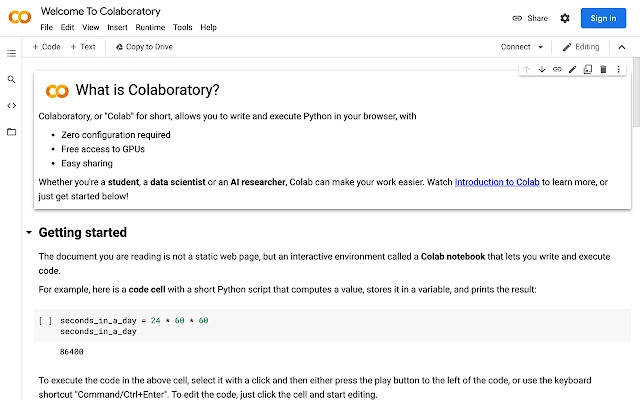
Google Colab allows anybody to write and execute arbitrary Python code through the browser and is especially well suited to machine learning, data analysis, and education. More technically, Colab is a hosted Jupyter Notebook service that requires no setup while providing free access to computing resources, including GPUs.
Quick Takeaways:
Provides a Jupyter Notebook environment that is pre-configured with most of the common libraries used in data science and machine learning.
Virtually no setup is required. Start coding immediately in the browser without any need for local installations or configurations.
Free access to computing resources like CPUs, GPUs, and TPUs; however, usage is limited. Google also offers Colab Pro and Colab Pro+ subscriptions that extend session times and provide more powerful resources for a monthly fee.
Check out the following comparisons from users on the best use cases between Saturn Cloud and Google Colab:
Saturn Cloud vs Google Colab for Data Science and Machine Learning
Saturn Cloud vs Google Colab: A Comparative Analysis for Data Science and Machine Learning
Paperspace Gradient
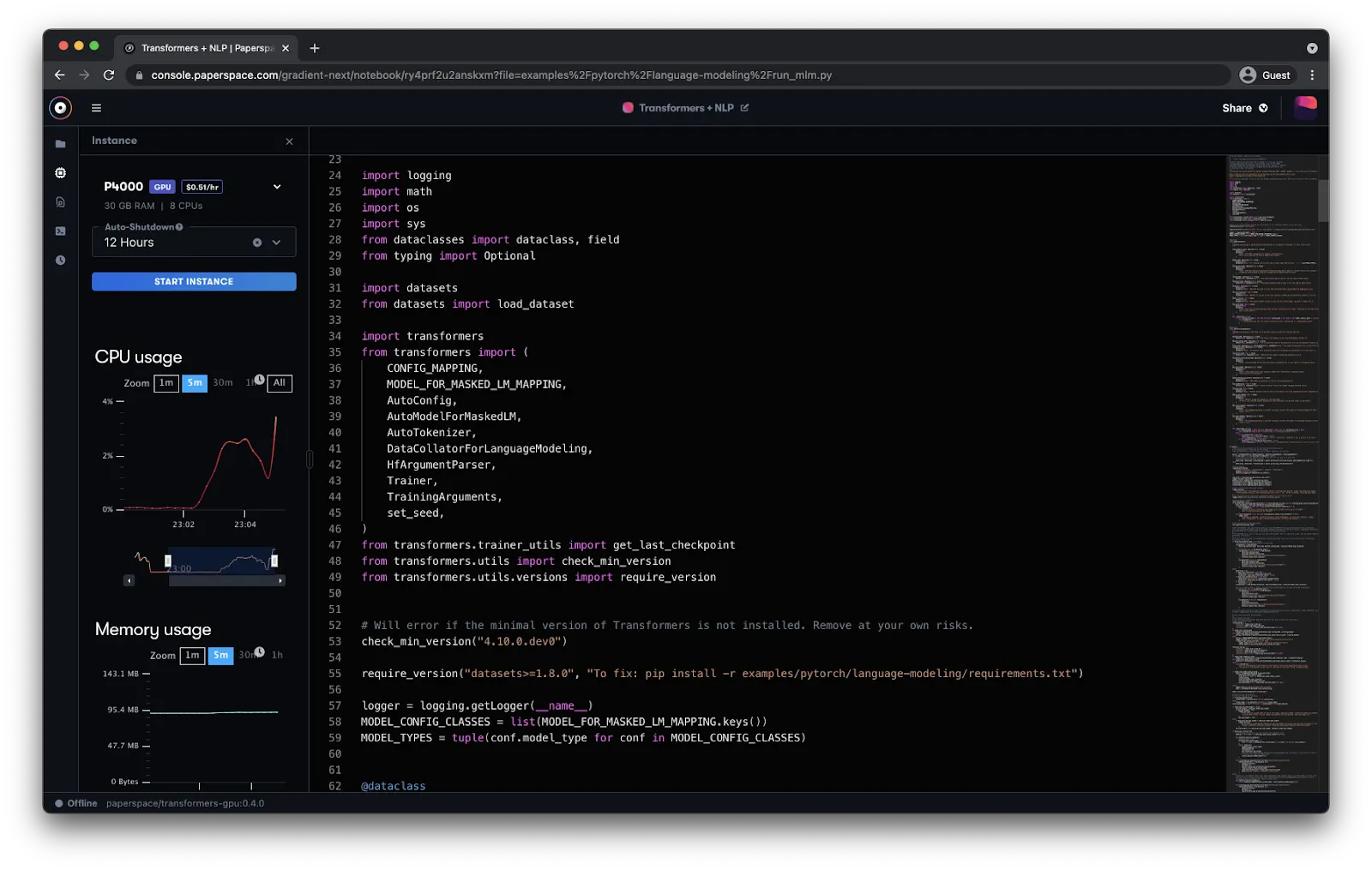
Paperspace Gradient is an end-to-end ML platform that can build, train, and deploy Machine Learning models of any size and complexity. Paperspace offers a free plan with limits to CPU and GPU machines. They also offer paid plans for greater access.
Quick Takeaways:
Offers managed Jupyter notebooks and a model management system to deploy and scale AI applications. It supports a wide range of frameworks and languages, and integrates with popular tools like GitHub.
Provides pre-configured environments and automates many of the routine tasks involved in machine learning workflows.
Provides a free tier that allows access to basic resources. Paid tiers offer more powerful GPUs, longer runtimes, and additional features for professionals and enterprises.
What’s the Right Tool For Me?
With so many MLOps tools available, how do you know which one is for you and your team? Several factors come into play, so here are some key aspects to keep in mind when choosing MLOps tools tailored to your organization:
Organization Size and Team Structure
Consider the size of your data science and engineering teams, their level of expertise, and the extent to which they need to collaborate. Tools with robust collaboration and communication features might benefit larger groups or more complex hierarchical structures.
Complexity and Diversity of ML Models
Evaluate the range of algorithms, model architectures, and technologies used in your organization. Some MLOps tools cater to specific frameworks or libraries, while others offer more extensive and versatile support.
Level of Automation and Scalability
Determine the extent to which you require automation for tasks like data preprocessing, model training, deployment, and monitoring. Also, understand the importance of scalability in your organization, as some MLOps tools provide better support for scaling up computations and handling large amounts of data.
Integration and Compatibility
Consider the compatibility of MLOps tools with your existing technology stack, infrastructure, and workflows. Seamless integration with your current systems will ensure a smoother adoption process and minimize disruptions to ongoing projects.
Customization and Extensibility
Assess the level of customization and extensibility needed for your ML workflows, as some tools provide more flexible APIs or plugin architectures that enable the creation of custom components to meet specific requirements.
Cost and Licensing
Keep in mind the pricing structures and licensing options of the MLOps tools, ensuring that they fit within your organization’s budget and resource constraints.
Security and Compliance
Evaluate how well the MLOps tools address security, data privacy, and compliance requirements. This is especially important for organizations operating in regulated industries or dealing with sensitive data.
Support and Community
Consider the quality of documentation, community support, and the availability of professional assistance when needed. Active communities and responsive support can be valuable when navigating challenges or seeking best practices.
Considering and aligning these factors with your organization’s needs and goals will help you make informed decisions when selecting MLOps tools that best support your ML workflows.
Final Thoughts
As businesses across industries leverage ML, MLOps will be increasingly vital in ensuring the successful, responsible, and sustainable deployment of AI-driven solutions. By adopting a robust and future-proof MLOps strategy, organizations can unlock ML’s true potential and drive transformative change in their respective fields.
Saturn Cloud is available on any cloud and provides a hassle-free infrastructure that supports scaling, collaboration, rapid deployment of ML models, and flexible pricing. Contact us for a free demo to learn more.
About Saturn Cloud
Saturn Cloud is your all-in-one solution for data science & ML development, deployment, and data pipelines in the cloud. Spin up a notebook with 4TB of RAM, add a GPU, connect to a distributed cluster of workers, and more. Request a demo today to learn more.
Saturn Cloud provides customizable, ready-to-use cloud environments for collaborative data teams.
Try Saturn Cloud and join thousands of users moving to the cloud without
having to switch tools.



